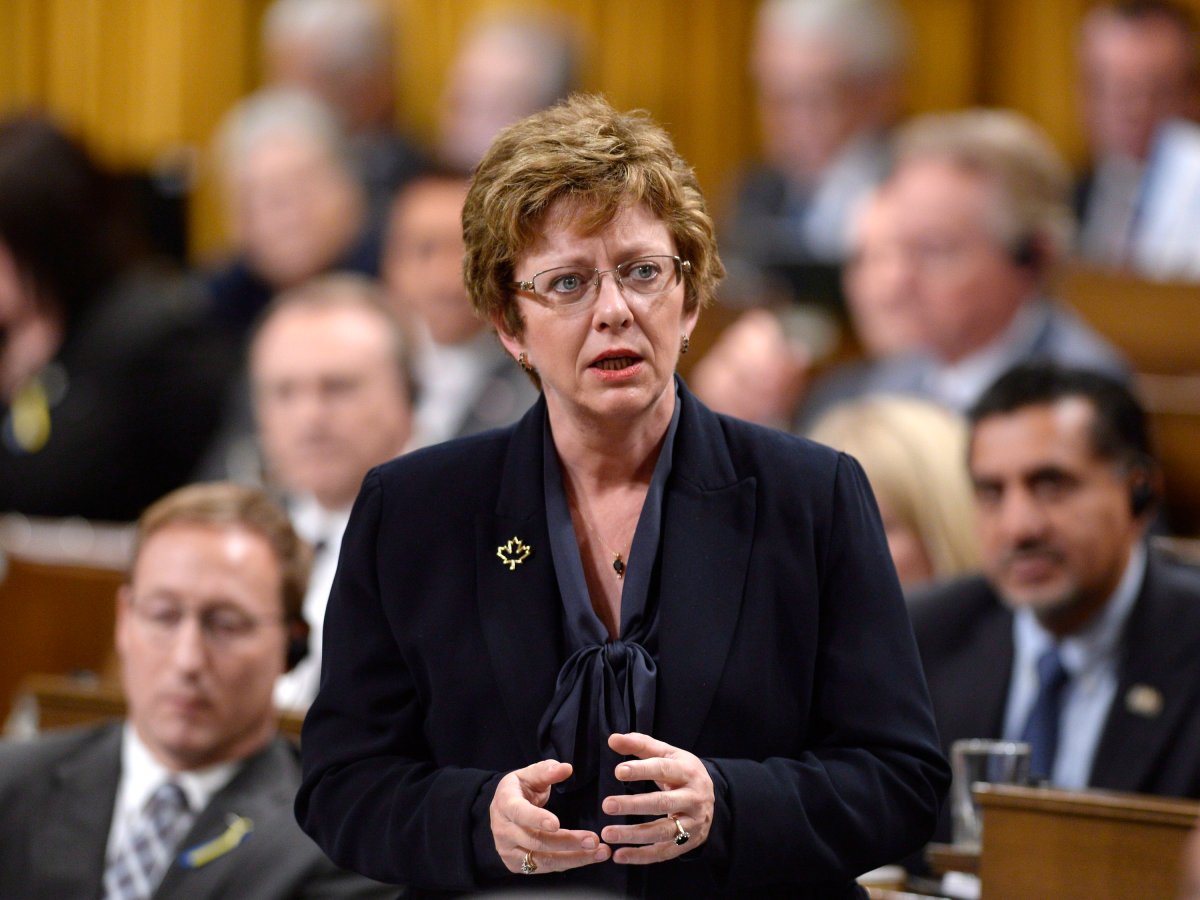OTTAWA – Senior cabinet minister Diane Finley improperly gave preferential treatment to a funding request from an Ottawa rabbi with ties to other senior Conservatives, including Prime Minister Stephen Harper, the federal ethics watchdog has concluded.

Mary Dawson says Finley broke conflict-of-interest rules when she gave $1 million in funding to a disabled skills centre in Markham, Ont., in 2011, even though the project had failed an initial departmental assessment.
But Harper is standing by his minister, insisting that Finley acted “in good faith” and did not gain personally by approving the funding. He also denied Tuesday that he knew anything about the specific application.
Finley maintained funding for the project was “in the public interest.” But NDP Leader Tom Mulcair had another description: “a dirty insider deal.”
Finley was minister of human resources and skills development at the time; she is currently in charge of Public Works.
The project was proposed by Rabbi Chaim Mendelsohn on behalf of the Canadian Federation of Chabad Lubavitch.
In a statement, Finley said she believed at all times that the project was worthy and in the public interest.
“The Commissioner clearly found that neither I nor any of my relatives or friends had any private interest in the decision to fund this project. Furthermore, she found that not only was I not friends with Rabbi Mendelsohn, but in fact we had never met.”
In a report released Tuesday, Dawson said at least two other ministers — then-foreign affairs minister John Baird and then-environment minister Peter Kent — and top officials in the Prime Minister’s Office intervened to encourage Finley to give the project consideration.
Mendelsohn, who boasted of mobilizing support for the Conservatives during the 2011 election, was closely connected to Baird and was a member of the delegation that travelled with Harper to Israel in 2014.
Nigel Wright, then Harper’s chief of staff, told Dawson that Finley pulled him aside outside a cabinet meeting to ask whether he considered Mendelsohn’s proposal important.
“He told her he had been asked by the prime minister to ‘sort it out,'” Dawson says.
“According to Mr. Wright, he did not intend to suggest to Ms. Finley that funding should be approved for the Markham project, only that it was important that the matter be considered carefully and fairly.”
As it turned out, Mendelsohn was the only applicant allowed to submit additional information to Finley’s department after failing the initial assessment. His application was also the only one to get a last-minute external evaluation, at Finley’s request.
Finley eventually approved $1 million for the project, taken from the Enabling Accessibility Fund. But the Chabad Lubavitch federation ultimately proved unable to get timely construction permits; after spending about $50,000, the remainder of its funding was withdrawn.
Finley told Dawson the Markham project was brought to her attention by “several colleagues” but she couldn’t remember any names — except that of Liberal MP Irwin Cotler, who Dawson discovered had actually sent Finley a letter supporting a different project in Montreal.
Finley denied or did not recall speaking to Baird, Kent or Wright.
But Wright told Dawson that Kent spoke to him about the project, urging that it receive fair consideration because there had been discontent in the Jewish community in the greater Toronto area over previous funding decisions.
Departmental officials recalled receiving a letter from Kent on the matter, vaguely recalling that he referred to the relationship between Toronto’s Jewish community and the Conservative party. Dawson was never able to obtain the letter, the content of which was disputed by Kent.
Dawson found that Mendelsohn also lobbied Baird’s office about the project and one Baird’s staffers emailed the rabbi to say the minister had been “happy to mention his views on Chabad Lubavitch to Minister Finley.”
Neither Baird nor Finley recalled discussing the matter.
“The public’s confidence in the handling of public funds and the fairness of government transfer payment programs is undermined when decision makers do not follow the government’s commitment to ensuring that programs … are managed with the highest level of integrity, transparency and accountability,” Dawson concludes in her report.
“Ministers are in a position of power and have a special responsibility to ensure that that power is exercised fairly and in a way that is open to all Canadians.”


Comments